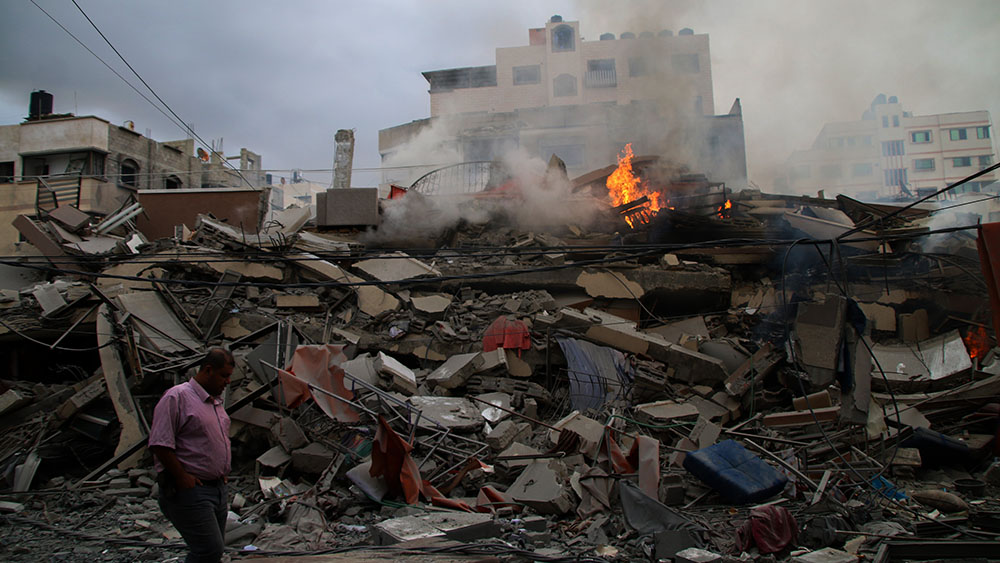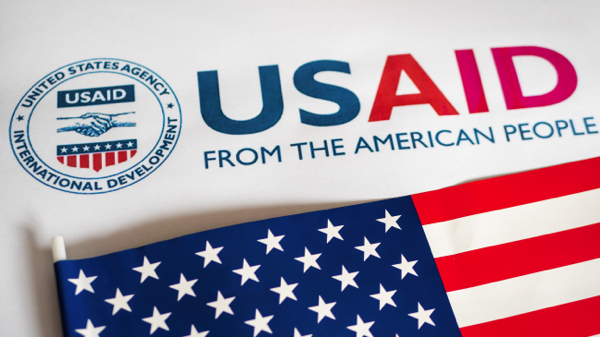 Parler
Parler Gab
Gab
- Trump suggests the U.S. take over Gaza, rebuild it, and turn it into a "Riviera of the Middle East."
- The proposal, which may have been influenced by Jared Kushner, involves clearing Gaza and temporarily relocating Palestinians.
- Regional leaders, including those in Saudi Arabia, strongly reject Trump's plan.
- Some analysts see the proposal as a provocative tactic to push for action, while critics fear it could lead to further conflict.
- Upcoming meetings with Jordan and Egypt will gauge the proposal's impact on U.S. foreign policy.
Kushner’s role in the controversial plan
According to reports from Puck and The Times of Israel, Kushner, who served as a senior advisor during Trump’s first term and played a pivotal role in negotiating the Abraham Accords, may have been instrumental in shaping the president’s Gaza proposal. Kushner, who has no official role in Trump’s current political endeavors but remains a trusted confidant, has previously described Gaza’s waterfront property as “very valuable” and suggested that Palestinians should be temporarily relocated to allow for redevelopment. “Gaza’s waterfront property—it could be very valuable, if people would focus on building up livelihoods,” Kushner said last year. “I would do my best to move the people out and then clean it up.” While Kushner’s comments were made in a private capacity, they appear to align closely with Trump’s recent public statements, raising questions about the extent of his influence on the former president’s thinking. Trump’s proposal, which he described as a “genius solution” to the ongoing conflict, involves the U.S. taking control of Gaza, clearing the rubble left by Israel’s military campaign, and inviting “the world’s people” to settle in the enclave. The plan, which Trump said could include the deployment of U.S. troops if “necessary,” has been met with mixed reactions. While some Israeli officials reportedly praised the idea as “historic” and “exceeding all expectations,” regional leaders in Egypt, Jordan, and Saudi Arabia have expressed alarm. Saudi Arabia, in particular, issued a strongly worded statement rejecting Trump’s claim that the kingdom would not condition normalization with Israel on Palestinian statehood. “The Saudi crown prince doesn’t want to be seen as being part of what Trump is talking about,” a U.S. source close to the Saudis told Axios.A calculated provocation or a genuine belief?
While Trump’s comments have drawn widespread criticism, some analysts believe the former president may be using shock tactics to spur other Middle Eastern leaders into action. “He is a disruptor. He wanted to challenge the discourse,” a source close to Trump said. By presenting an audacious and controversial plan, Trump may be attempting to force regional players to come forward with their own solutions for Gaza’s future. However, the proposal’s potential consequences cannot be ignored. Critics warn that Trump’s plan could embolden both Hamas and Netanyahu to resume hostilities, jeopardizing the fragile ceasefire and hostage deal currently in place. Moreover, the idea of displacing two million Palestinians—even temporarily—has been condemned as a violation of international law and a recipe for further instability in the region. Although Trump is not wrong in saying that the status quo in Gaza is unsustainable and that bold action is needed to prevent the region from descending into chaos once again, the idea of U.S. military intervention and mass displacement is horrifying. One can only hope that Trump’s comments are more about provoking dialogue than reflecting a genuine policy stance. The coming weeks will be critical, as Jordan’s King Abdullah II and Egyptian President Abdel Fattah el-Sisi are set to meet with Trump in Washington. These discussions will likely determine whether Trump’s proposal is a fleeting provocation or the start of a dangerous new chapter in U.S. foreign policy. Sources for this article include: News.Antiwar.com Axios.com CNN.comFEMA spends $59M on luxury hotels for illegal immigrants as disaster victims suffer
By Cassie B. // Share
USAID-funded independent media in Ukraine now in crisis due to lack of American funds
By Willow Tohi // Share
Science’s turn towards darkness
By News Editors // Share
Bill Gates alarms conservatives: Pandemic warnings and USAID critique spark outrage
By Willow Tohi // Share
Trump orders overhaul of USAID amid allegations of corruption and wasteful spending
By Belle Carter // Share
Governments continue to obscure COVID-19 vaccine data amid rising concerns over excess deaths
By patricklewis // Share
Tech giant Microsoft backs EXTINCTION with its support of carbon capture programs
By ramontomeydw // Share
Germany to resume arms exports to Israel despite repeated ceasefire violations
By isabelle // Share









